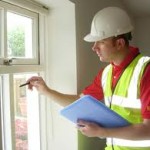Buying a brand new home built to exacting standards, the latest energy-efficient designs with a ten-year warranty, where could naive, trusting new homebuyers possible go wrong? Read on to discover the twenty most common mistakes made by Britain’s new home buyers and make sure you don’t become yet another victim of the UK housebuilding industry.
 1) Buying a new home because they can not because they should Various government schemes such as Help to Buy schemes make it easier and often the only financially possible way to get on the housing ladder. Being able to buy is not alone a good enough reason to buy a new home.
1) Buying a new home because they can not because they should Various government schemes such as Help to Buy schemes make it easier and often the only financially possible way to get on the housing ladder. Being able to buy is not alone a good enough reason to buy a new home.
2) Using the housebuilder’s recommended, suggested or nominated firm of solicitors
The number one mistake made by new homebuyers. Despite it being illegal for housebuilders to insist that buyers use a certain solicitor, it still occurs. One major plc housebuilder even pre-filled in reservation forms with their preferred solicitor! By using the housebuilder’s solicitor buyers are not only relinquishing control of the process to the housebuilder, they are actually putting themselves at a legal disadvantage by not having their interests represented. Issues include; buyers legally completing on unfinished houses, a buyer of a flat later discovered specifications had been changed and the length of lease reduced and being told that completion certificates and warranty documents had been received when they had not even been issued, due to unresolved compliance and warranty problems with the home.
3) Not having their new home independently professionally snagged and inspected
 The second biggest mistake new homebuyers make is not having their new home professionally snagged and inspected before they legally complete. It is a sad fact that around 96% of all new homes buyers will have defects and problems with their new homes after they have moved in. Many, if not all of these could have been prevented if the property had been properly inspected at each construction stage by both the housebuilder’s site management and warranty provider. It is therefore essential that new homebuyers use an independent professional to thoroughly snag and inspect their new home before they legally complete. This not only ensures it is, at the very least, fully completed before they pay for it, it also highlights all visible defects, snags and breaches of regulations and warranty standards. Unfortunately both the housebuilders and warranty providers cannot be relied upon to properly carry out the inspections and oversee remedial works to correct defects.
The second biggest mistake new homebuyers make is not having their new home professionally snagged and inspected before they legally complete. It is a sad fact that around 96% of all new homes buyers will have defects and problems with their new homes after they have moved in. Many, if not all of these could have been prevented if the property had been properly inspected at each construction stage by both the housebuilder’s site management and warranty provider. It is therefore essential that new homebuyers use an independent professional to thoroughly snag and inspect their new home before they legally complete. This not only ensures it is, at the very least, fully completed before they pay for it, it also highlights all visible defects, snags and breaches of regulations and warranty standards. Unfortunately both the housebuilders and warranty providers cannot be relied upon to properly carry out the inspections and oversee remedial works to correct defects.
4. Not doing any research regarding housebuilders or new homes before buying
Websites such as our sister site www.brand-newhomes.co.uk and various forums have a wealth of information available for the new homebuyer. This enables them to make a fully informed choice, aware of what can and does go wrong and what steps they can take to reduce disappointment and feelings of regret and resentment after moving in.
5. Paying too much – not getting a discount
All house builders have a price list but only a fool actually pays the full price. Site sales staff nearly always have “negotiables” they can offer buyers with discounts amounting to 5-10% off the full advertised price on certain plots at certain times of the year. In addition, many new homebuyers buy at or near the top of the market paying too much only to later watch as the resale value of their home plummets just as interest rates rise and the housing market crashes.
6. Buying a new home from the wrong housebuilder
Nearly all house builders build poor quality new homes and pay little more than lip service when defects are reported by their unfortunate, unsuspecting buyers. But two or three large housebuilders are far worse than others.
7. Buying a new home without an NHBC warranty
Even with its limitations such as minimum claim value and difficult claims procedure, the NHBC warranty is still far better than nothing and most other new home warranty providers. If a house builder does not offer an NHBC warranty this should act as a warning to buyers. Have they been delisted by the NHBC? Have the NHBC put up the builder’s premiums because of previous high claims?
8. Buying a new home with a shared driveway
Shared driveways are now a common feature on new developments, but remain one of the main causes of neighbourhood disputes. So if you don’t want children hitting your car with footballs or arguments about parking and maintenance shared driveways should be avoided.
9. Buying a new home on an estate with non-adopted roads and public open spaces
It is becoming common that councils do not want to adopt estate roads and public open spaces on new developments under a Section 38 Agreement. House builders are also looking to save money by not having to construct them to adoptable standards. Narrow roads with only one footpath save money and facilitate even more plots crammed into to each acre. The downside for new home buyers is that they are then saddled with a management company charging fees for maintenance, street lighting, cleaning, landscaping and third party insurance all paid for by a service charge levied on every property.
10. Buying a new home scheduled to be completed at end of year or half year figures time
Whenever buyers reserve their new home, if completion date is on or around the housebuilder’s end of year or even half-year financial cut off date, the chances are it will be rushed, have even more snags and defects than usual and may not even be fully completed when the housebuilder forces buyers to legally complete. The introduction of the CML final inspection was supposed to prevent this but it does not guarantee that all new homes are 100% fully finished before buyers legally complete and move in.
11. Using the builder’s carpets and carpet contractor
Housebuilder’s carpet is usually of inferior quality, especially if included or bought as an optional extra. Buyers will nearly always be better off going direct to an independent carpet shop getting a better quality carpet and underlay, fitted properly and often, for less money!
12. Believing and trusting site sales advisors
 Amazingly, most people trust the housebuilder’s sales staff. But these people are selling and get paid commission to sell and do so at all costs; even if this means not telling the truth, avoiding mentioning significant information or deliberately misleading people.
Amazingly, most people trust the housebuilder’s sales staff. But these people are selling and get paid commission to sell and do so at all costs; even if this means not telling the truth, avoiding mentioning significant information or deliberately misleading people.
13. Not getting everything in writing and/or recording all conversations with house builder’s staff
When site sales lie, buyers will need to be able to prove it if they need to complain and make a claim. It is essential to have a written or audio record to ensure clarity.
14. Paying for overpriced optional extras, so called “finishing touches”
Optional extras offered by housebuilders are nearly always poor value and often carried out by the same personnel building the home to the same low standards!
15. Being fooled by the tricks of the show home
Housebuilders are clever at marketing something very small but making it appear bigger than it is. Using shameful tricks of the show homes like mirrors, lighting, glass tables, leaving off doors and even reduced sized furniture to deceive potential buyers.
16. Not referring to the Consumer Code for Home Builders
This was the house building industry’s response to the issues raised in the Barker Review 2004 and the OFT study into home building in the UK (2008) which related to customer service and satisfaction. The requirements are supposed to be adhered by all housebuilders but in general rarely are. Most of the requirements are legal obligations found in the Consumer Protection from Unfair Trading Regulations 2008 which make it a legal requirement to treat consumers fairly and The Business Protection from Misleading Marketing Regulations 2008, reinforcing the legal requirement not to make misleading or false statements. However most new home buyers are not aware of the legislation or the housebuilder’s own Code of Conduct and those that are rarely take any action to address wrongdoing.
17. Moving in at Christmas
Christmas is one of the worst times of the year to move into a new home. The home will nearly always be rushed and poor quality. Moving costs will be high at this time of year and even the weather will be against you!
18. Buying the show home
Ex show homes are nearly always overpriced and should be regarded as second-hand, often with reduced NHBC warranty, used appliances and worn carpets. be aware of the pros and many cons of buying an ex show home
19. Buying a timber frame home
Buying a timber frame new home is a bad choice for so many reasons! – durability, poor quality, noise and fire.
20. Buying a leasehold property
Leasehold properties have many disadvantages over a freehold home. Normally flats, leasehold means ground rent, expiring lease and ongoing management and maintenance charges.





